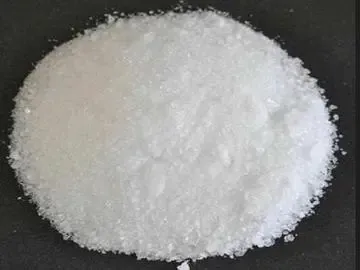Sodium phosphate is a term that encompasses a variety of compounds derived from phosphoric acid and sodium. It plays a significant role in various industrial, medical, and dietary contexts. This article aims to explore the different types of sodium phosphate, its uses, potential adverse effects, and food sources containing sodium phosphate.
What is Sodium Phosphate?
Sodium phosphate can refer to several chemical forms, including sodium phosphate monobasic and sodium phosphate dibasic. These compounds are often used as buffering agents in pharmaceutical products and food processing. Sodium phosphate is easily soluble in water, making it a versatile ingredient in various applications.
Types of Sodium Phosphate
- Sodium Phosphate Monobasic (NaH2PO4): This is the monosodium salt of phosphoric acid. It is often used in food products as a preservative and a stabilizing agent. Additionally, it is utilized in the medical field for electrolyte replenishment.
- Sodium Phosphate Dibasic (Na2HPO4): This form contains two sodium ions per phosphate ion, and it serves as a buffering agent, especially in intravenous fluids. It helps maintain phosphate levels in patients who require electrolyte support.
Uses of Sodium Phosphate
Medical Applications
Sodium phosphate is commonly used intravenously in clinical settings to treat conditions that require electrolyte correction, such as hypophosphatemia. Sodium phosphate tablets are also available for oral administration, helping to manage phosphate levels in patients with kidney disease or those undergoing dialysis.
Dietary Applications
In addition to medical uses, sodium phosphate is found in various processed foods as an additive. It can help with texture modification and moisture retention. Foods commonly containing sodium phosphate include cheeses, meats, and some canned products. The Food and Drug Administration (FDA) recognizes it as safe when used in appropriate amounts.
Adverse Effects and Considerations
While sodium phosphate is generally considered safe, it may cause adverse effects in certain populations, especially those with existing health conditions like kidney disease. It is crucial for individuals to consult their healthcare provider before using sodium phosphate products, particularly those with kidney issues or those on a sodium-restricted diet.
Possible Adverse Effects:
- Gastrointestinal discomfort (e.g., nausea, diarrhea)
- Constipation
- Elevated phosphate levels, potentially leading to phosphate toxicity if taken in excess
Patients using sodium phosphate should be vigilant for serious side effects and call their doctor immediately if they experience unusual or allergic reactions.
Foods That Contain Sodium Phosphate
Many processed foods contain sodium phosphate as a preservative or texture enhancer. These foods can include:
- Processed cheeses
- Cured meats (e.g., deli meats)
- Frozen foods
- Baking powders
Consumers should be aware of the sodium content in these foods, as excessive sodium intake can lead to health issues, including hypertension.
Conclusion
Sodium phosphate is a versatile compound with various applications in medicine and food processing. While it plays an essential role in maintaining electrolyte balance and food quality, it is vital to use it judiciously, particularly for individuals with health conditions related to kidney function. Always talk to your doctor or healthcare provider about any concerns regarding the use of sodium phosphate, especially in its medicinal form.

